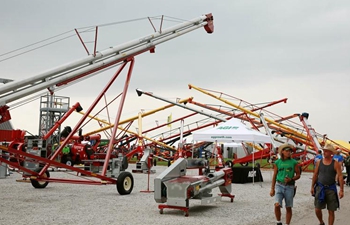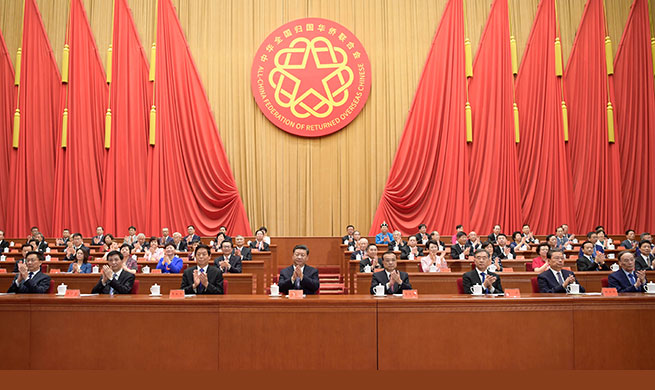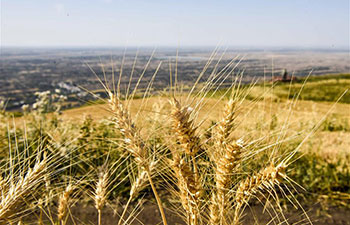BEIJING, Aug. 30 (Xinhua) -- China can significantly reduce its soybean imports, a major source of fodder, by putting more low-protein feed in the troughs, experts have said.
"The country is able to reduce up to 10 million tonnes of soybean imports annually by applying low-protein feed in pig farms," said Li Defa, head of the China Feed Industry Association.
Pork is China's staple meat, and pig farms consume the lion's share of feed products. The country imported 95 million tonnes of soybeans last year, a majority of which was made into 70 million tonnes of soybean meals, said Li, who is also an academician of the Chinese Academy of Engineering.
Li said feed with a lower share of protein but supplemental artificial amino acids can offer the same energy to farm animals and will not affect the quality of the meat.
The alternative is also economically appealing for being able to reduce swine fodder cost by at least 30 yuan (about 4.3 U.S. dollars) per tonne, he said.
To reduce farmer's dependence on soybeans, Li also suggested adopting more soybean meal substitutes such as meals from canola and cottonseed.
"In a nutshell, the answer is two-fold: we can use more low-protein feed and increase the domestic soybean supply," he said.
Earlier this year, the Ministry of Agriculture and Rural Affairs said China's soybean planting area would increase by about 667,000 hectares this year.
"Soybean meal substitutes will be the automatic choice given the price hikes of soybeans," Hu Bingchuan, an agriculture researcher with the Chinese Academy of Social Sciences, told Xinhua.
"Soybean usage can be reduced as buyers opt for more cost-effective substitutes," Hu said, adding that ample grain supply in the global market also provides China with a lot of leeway to meet its domestic demand.
"So far, the global crop market has remained a buyer's market," Hu said. "Over the past several decades, prices of agricultural products have stayed stable amid long-term adequate supply."

















